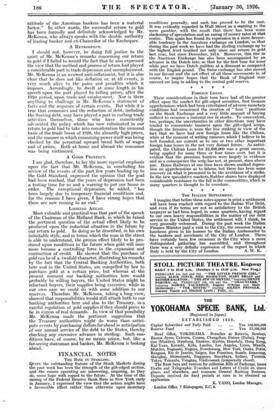A RETROSPECT.
I should not, however, be doing full justice to the spirit of Mr. McKenna's remarks concerning our return to gold if I failed to record the fact that he also expressed the view that the method and process of return had played a considerable part in trade depression and unemployment. Mr. McKenna is an avowed anti-inflationist, but it is also clear that he does not like deflation or, at all events, is very much alive to the pains and penalties which it imposes. Accordingly, he dwelt at some length in his speech upon the part played by falling prices, after the 1920 period, upon trade and employment. Nor is there anything to challenge in Mr. McKenna's statement of facts and the sequence of certain events. But while it is true that economies and the reduction of debt, including the floating debt, may have played a part in curbing trade activities themselves, those who have consistently advocated the policy which has now culminated in our return to gold had to take into consideration the unsound basis of the trade boom of 1920, the absurdly high prices, and the manner in which consuming power itself was being checked by the perpetual upward trend both of wages and of prices. Both at home and abroad the consumer was being victimized.


















































 Previous page
Previous page